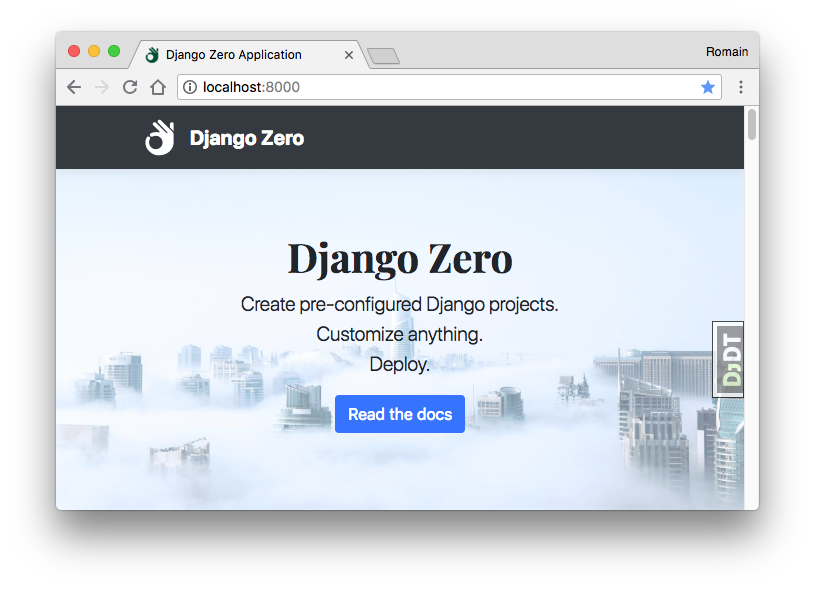Django Zero
Django Zero helps creating and maintaining fully-featured, modern and maintainable django applications.
It preinstalls dependencies and provides reasonable defaults, to let you focus on features and business value.

Out of the box, you get a Django project with:
- Default settings to start working now.
- Debug Toolbar and Django Extensions.
- Allauth with Jinja2 templates.
- Whitenoise.
- Jinja2 (with django-like filters) and/or Django Template Language (DTL)
- Webpack 4 & Babel for scripts and styles bundling/transpilation (ES6, JSX, SASS).
- Bootstrap 4.1 (easy to remove if you don't want it).
- Build pipeline (various options).
Note that this documentation does not explain the underlying tools, like how to develop using django, we only focus on what is django-zero and it gives links to the other tools.
Quick start
You need Node.js 8+ with Yarn and a python 3.5+ environment (user should have write permissions).
$ pip install django-zero[dev]
Create and run a project:
$ django-zero create project acme
$ cd acme
$ django-zero install --dev
$ django-zero manage migrate
$ django-zero start
Open http://localhost:8000/, enjoy!
Table of Content
License
Django-Zero is released under Apache License Version 2.0.
Dependencies have their own licenses.
Status
This is an early preview. We use it on multiple production websites at Makersquad, and we know a few more people using it, but you should be aware that things can be a bit rusty here and there, changes are sometimes necessary, etc.
Use at your own risks, and take the time to understand how it works.